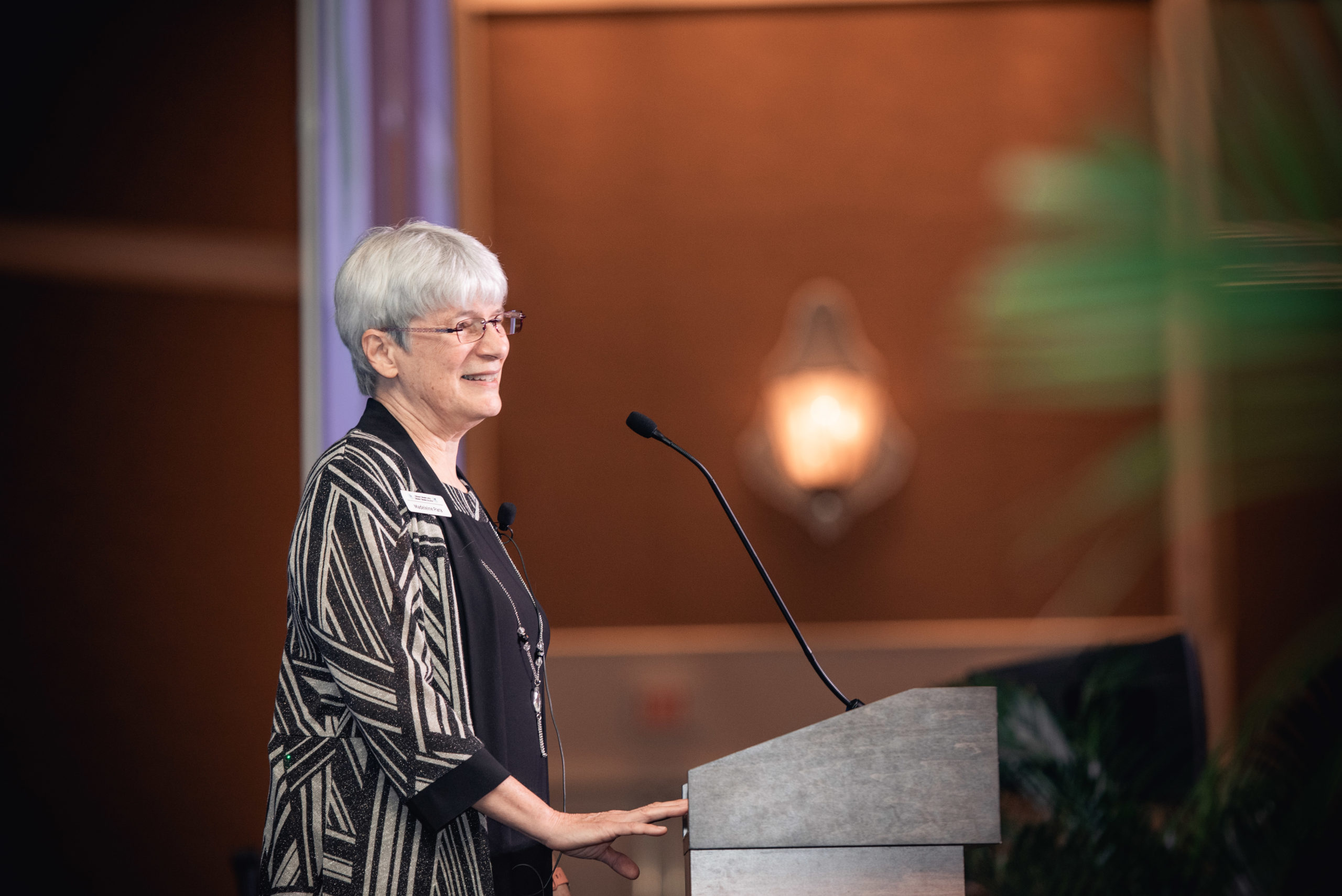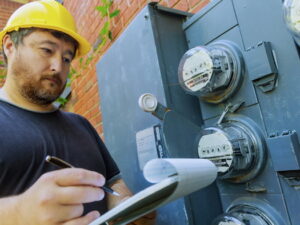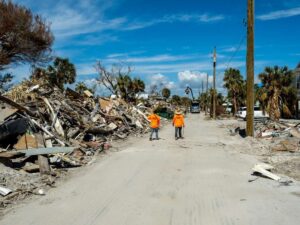CCL turns to the future of our advocacy
By Madeleine Para
This speech was given by CCL Executive Director Madeleine Para at CCL’s June 2022 conference.
And now let’s turn our minds to where we are going next. I know you’re eager to hear about it.
One of the things I’ve loved about becoming Executive Director has been the opportunity to meet leaders of other organizations, and think with them about strategy and collaboration. It’s been useful and fun and I feel like I’ve been making new friends.
One of those new friends spends a lot of time on Capitol Hill, and he told me that the last five yards are the hardest in football and in politics. Now I have no business talking about football, as everyone around me knows, but nevertheless, I think I can say it is not uncommon to get most of the way down the field and then be frustrated by the final plays. Touchdowns don’t always get scored, and bills can get stalled. I believe that’s where we are now — in the last five yards of budget reconciliation.
As a reminder, budget reconciliation allows certain kinds of legislation to pass with a simple majority that avoids the filibuster. With Democrats holding a slim majority in the Senate, it became clear they would use budget reconciliation to try to pass a variety of policies, including on climate. It was quite a game plan.
Together, we at CCL put carbon fee and dividend into Congress’ playbook. That took years. And since last summer, we helped them run that play and move incredibly far down the field during the budget reconciliation process. Last fall, the New York Times, Wall Street Journal, and other major news outlets were all reporting that our preferred policy was under serious consideration. That would not have happened without CCL’s advocacy and all your hard work.
Last summer we also had great success with our supporting ask legislation. We helped attract over 40 Republican cosponsors for the Growing Climate Solutions Act, helping it pass the Senate with an overwhelming 92 votes. And we helped other bipartisan energy policies, like the SCALE Act, the Climate Ready Fisheries Act, the USE IT Act, and the BEST Act, make it all the way to becoming law.
And still, we can see those final five yards of budget reconciliation stretching out in front of us. The odds are against getting a carbon price this round. I think you know this already. We might, because the clock hasn’t run out yet, and we will keep at it until the final whistle sounds. We need to work for all the gains we can get. That means that if budget reconciliation with significant climate legislation is developed, we will be mobilizing to support it, with or without a carbon fee in it. If we don’t get a win on carbon pricing this Congress, we will continue working to bring Republicans and Democrats together to get it adopted.
Either way, we will take the gains we have made in this Congress and continue to move forward toward our mission. Here at CCL, we are building the political will for a livable world.
These last few months have shown us that we haven’t quite reached critical mass when it comes to political will. There simply isn’t enough yet to pass the biggest, most critical climate policies into law.
Late last year, we began exploring what additional efforts we could make. Not by abandoning our relentless pursuit of carbon fee and dividend — because there is truly nothing comparable in its impact on emissions, and we remain committed to that policy — but by adding policies that are also needed to achieve a healthy climate and which will help build the additional political will that is crucial to success on climate change. So today, I’m excited to share that, in addition to our pursuit of carbon fee and dividend, CCL will throw our weight behind carefully chosen clean energy and nature-based policies.
Our process began with identifying a team and gathering expert information about other policies. We did over 30 interviews this year with climate leaders, modelers, economists, environmental justice advocates, and eco-right leadership, and we got valuable input from you, our volunteers. This process made clear to me that there are many smart people and organizations working on the climate problem in a variety of ways. It was a privilege to meet with them and learn from them. They hold your work in high regard, and many of them would dearly love for CCL to partner with them on their particular approach.
From this process, two distinct policy areas emerged that nicely complement carbon fee and dividend. Those areas are: building the clean energy economy, and pursuing nature-based solutions, starting with protecting and growing forests. Policies in these two areas can help us lock in emission cuts before and after a carbon price is enacted. They will help us build the additional political will we need in Congress, broaden and strengthen our supporter base, and, crucially, help us drive greater emissions reductions faster.
Our decision to focus in these two areas is supported by the most recent report of the Intergovernmental Panel on Climate Change, which highlighted the energy and land use sectors as having the greatest and most cost-effective potential to reduce greenhouse gasses. These solutions will be critical in reducing greenhouse gasses enough to meet the Paris targets.
In recent months, issues like inflation and the war in Ukraine have highlighted just how important clean energy really is. The sooner we can usher in a clean energy economy, the better for our country and our climate. Clean energy promotes national security, gets Americans off the roller coaster of prices at the pump, improves our air quality and therefore our health, and mitigates climate change at the same time. We are looking closely at policies that will help electrify buildings, increase efficiency and energy equity, strengthen our nation’s power grid, and update how power is transmitted across the country. As we saw with many of our supporting asks, policies in this area offer rich opportunities for bipartisan cooperation.
For those natural or land-based climate solutions, we’re particularly interested in the opportunities presented by forests. Reforestation helps store and remove carbon, and it doesn’t stop there — healthy forests help us and other species adapt to an already-changing climate. Urban forests can save lives in a heat wave. State and local forest issues can offer a strategic way for us to reach new people across rural, urban, and suburban communities, and across political identities.
I’m grateful to all the staff, volunteers, and outside experts who have contributed to our process so far. I’m eager to see what we can do when we harness the power of markets, technology, and nature to solve climate change. I predict that we will have lots of fresh and satisfying ways to engage in our communities and on the Hill because we have broadened our focus. There is much work to be done yet to solidify the specific policy choices we will advocate for underneath the broader categories of clean energy and nature-based solutions. And the outcome of budget reconciliation will have important bearing on what we should focus on. Please consider this to be an interim report to you today.
And while we work out the specific policies, what is our policy and strategic focus right now this year? I’m glad you asked!
Our policy agenda is to get the strongest possible climate provisions passed through budget reconciliation and to move Republicans forward on our supporting asks. Our VP of Government Affairs, Danny Richter, laid this out very clearly in his two lobby trainings in May. So go have terrific lobby meetings and be prepared to mobilize as legislation advances.
Our strategic agenda is to bring calls for climate action into the campaigns that are playing out across the country between now and November, and to make sure environmentally minded people are voting and to grow our grassroots strength so that we are ready for action when the new Congress comes in next year.
And if you are eager to get started in working on our new policy areas, the place to start is by educating yourselves. Our recent national calls are a resource, as are the breakout sessions we offer during the conference. Brett is uploading a new page on Forests today on our member website, CCL Community, to help you dive in there.
There’s no one I would rather be working with to solve this problem than you. I know that you will remain driven by the values that we have seen you display since day 1: Your passion. Your persistence. Your creativity. Your unshakeable commitment to solving these problems and to supporting each other. Together, we’ll do what it takes to build the political will for a livable world. We will strive, step by step, for a healthy climate, on behalf of everything we hold dear.






